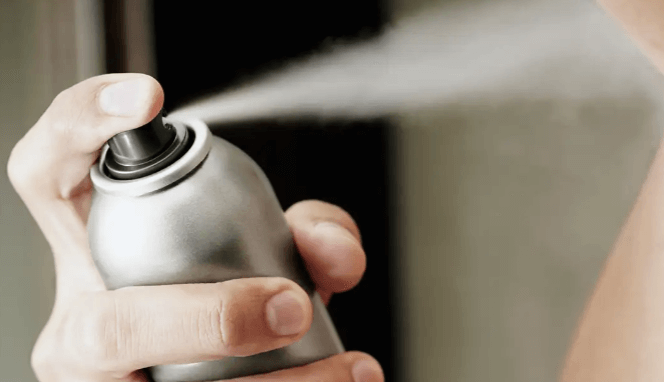The Science Behind Underarm Odor: Understanding and Remedies

Underarm odor arises when apocrine gland secretions are metabolized by bacteria like *Staphylococcus hominis*, producing compounds like thioalcohols. Diets like high-sulfur foods and hormonal changes can amplify this effect. Effective management includes proper hygiene, like using antibacterial soap and breathable clothing, and possibly medical interventions like Botox or prescription antiperspirants. These reduce sweat availability and bacterial activity. Furthermore, understanding your diet’s role and choosing natural antimicrobial products can aid in combating odor. For those curious about deeper insights, exploring available strategies will enhance your control over underarm odor challenges.
Causes of Underarm Odor
Underarm odor often results from the breakdown of sweat produced by the apocrine glands, which are particularly active after puberty. These glands secrete a protein-rich sweat that provides an ideal environment for bacteria, especially Staphylococcus hominins, to thrive. As the bacteria metabolize the sweat, they release compounds responsible for body odor. Understanding this process is vital for addressing and managing unpleasant underarm odor effectively.
Poor hygiene practices can exacerbate body odor, allowing bacterial populations to flourish unchecked. Regular washing using antibacterial soap can minimize bacterial growth and mitigate odor. However, some individuals experience excessive sweating due to hyperhidrosis, which increases moisture and promotes bacterial activity. This results in more pronounced odors that may require additional interventions.
Diet and hormonal changes also play essential roles in influencing the type and intensity of body odor. Foods like garlic and onions or certain medications can intensify smells, while hormonal fluctuations can alter sweat composition. By adopting thorough hygiene practices and considering dietary adjustments, you can significantly reduce the impact of underarm odor. In persistent cases, seeking medical advice may provide tailored solutions to manage excessive sweating and odor.
Biochemistry of Sweat
Exploring the underlying biochemistry of sweat reveals why certain odors develop and how they can be managed. Sweat itself is a complex fluid composed of water and contains electrolytes, proteins, lipids, and other organic compounds. The biochemical composition of your sweat varies based on individual factors like diet and genetics. Apocrine glands, active during puberty, produce a thicker, protein-rich sweat. This type of sweat is highly susceptible to bacterial breakdown, particularly by skin bacteria like Staphylococcus hominis.
When these bacteria metabolize the compounds from apocrine sweat, they produce odorous compounds known as thioalcohols. These compounds are primarily responsible for underarm sweat’s distinct, often unpleasant odors. Eccrine glands, on the other hand, secrete a more diluted and odorless sweat, playing a key role in thermoregulation rather than odor production.
Understanding the distinct roles of these glands allows you to manage body odor more effectively. By maintaining proper hygiene, using antibacterial soaps, and applying antiperspirants, you can reduce the amount of sweat available for bacterial breakdown, thereby minimizing the production of odorous compounds. This approach helps in serving others by promoting a more pleasant social environment.
Impact of Diet on Odor
Diet plays an essential role in influencing body odor, with specific foods contributing to the intensity and character of the scent. Consuming certain foods can exacerbate body odor by affecting sweat composition and bacterial interactions on the skin. For example, sulfur-rich foods like garlic and onions produce volatile compounds that linger in sweat, enhancing odor. Additionally, spicy foods containing capsaicin can increase sweat production, providing bacteria with more opportunity to create a distinct smell.
Consider these dietary components that may impact body odor:
- Sulfur-rich foods: Garlic, onions, and cruciferous vegetables produce volatile compounds that intensify odor.
- Red meat: Diets high in red meat can contribute to more pungent body odor as its breakdown releases odor-causing substances.
- Hydration: A lack of sufficient water intake results in concentrated sweat, which can amplify unpleasant scents.
- Alcohol consumption: As your body metabolizes alcohol, it can alter your natural scent, often perceived as undesirable.
Role of Hormones
As hormonal fluctuations occur, particularly during puberty, they activate apocrine glands in the armpits, leading to increased sweat production and a potential spike in body odor. This connection between hormonal changes and body odor is not limited to puberty. You may notice similar effects during menstruation, pregnancy, or menopause, as these periods also involve significant hormonal shifts. Apocrine glands become more active under the influence of androgens, such as testosterone, which explains why individuals assigned male at birth might experience a more pronounced underarm odor.
Hormonal imbalances play an important role in altering sweat production and body odor. Conditions like polycystic ovary syndrome (PCOS) can cause disruptions in hormone levels, affecting both sweat composition and skin microbiota activity, consequently impacting odor. Research even suggests that certain odors produced in response to hormonal changes may serve an evolutionary purpose, potentially attracting mates.
Understanding these hormonal dynamics helps you address body odor more effectively. By recognizing how hormonal changes influence your body’s chemistry, you can better tailor solutions that suit individual needs, ultimately serving others by promoting comfort and confidence in social interactions.
Read also How to express love by gifting perfumes
Effective Hygiene Practices
Effective hygiene practices are essential in managing underarm odor, as they target the root causes of bacterial buildup. A consistent routine helps minimize bacteria and sweat interaction, reducing unpleasant odors. Start by showering daily with antibacterial soap, which effectively diminishes the bacteria responsible for breaking down sweat. Deodorant or antiperspirant immediately after showering can better control sweat and odor, as clean skin enhances product absorption.
Consider these steps to maintain ideal hygiene and serve those around you by staying fresh:
- Shave or wax underarm hair: This reduces the surface area for bacteria to thrive, minimizing odor production.
- Wear breathable fabrics: Choose materials like cotton to allow air circulation, helping keep underarms dry and less conducive to bacterial growth.
- Change clothes regularly: Especially after exercise, to prevent sweat accumulation and maintain underarm freshness.
- Practice mindful diet choices: Reducing pungent foods can decrease sweat’s odor intensity.
Medical Treatment Options
While maintaining proper hygiene can often manage underarm odor, some individuals may require more robust solutions due to excessive sweating or persistent odors. For those dealing with hyperhidrosis, medical treatment options provide targeted relief. Prescription antiperspirants containing aluminum chloride can greatly decrease sweat production, vital for reducing body odor. They’re often recommended when over-the-counter solutions fail to suffice. These antiperspirants work by forming a temporary plug within the sweat glands, thereby reducing sweat flow.
Botox injections represent another effective option. Botox can offer considerable relief for those suffering from hyperhidrosis by blocking the nerve signals responsible for sweat production. Clinical studies have demonstrated its efficacy in significantly lowering sweat levels, thereby minimizing associated odors. The effects typically last several months, requiring periodic treatments.
In more severe cases, surgical interventions like endoscopic thoracic sympathectomy (ETS) might be considered. Although it’s a last resort, ETS has improved the quality of life in over 90% of patients post-procedure. It’s essential, however, to consult with a healthcare provider when experiencing sudden changes in body odor or unusual sweating patterns, as these may indicate underlying health conditions requiring further investigation.
Conclusion
You’ve explored the science of underarm odor, understanding its causes, and investigating effective remedies. Isn’t knowing you can manage this natural phenomenon with simple lifestyle changes is empowering? From antibacterial soaps to medical treatments, you’ve got options at your disposal. Remember, the key lies in understanding your body’s unique chemistry and making informed choices. Why not take the first step today and confidently embrace the journey toward fresher underarms?





